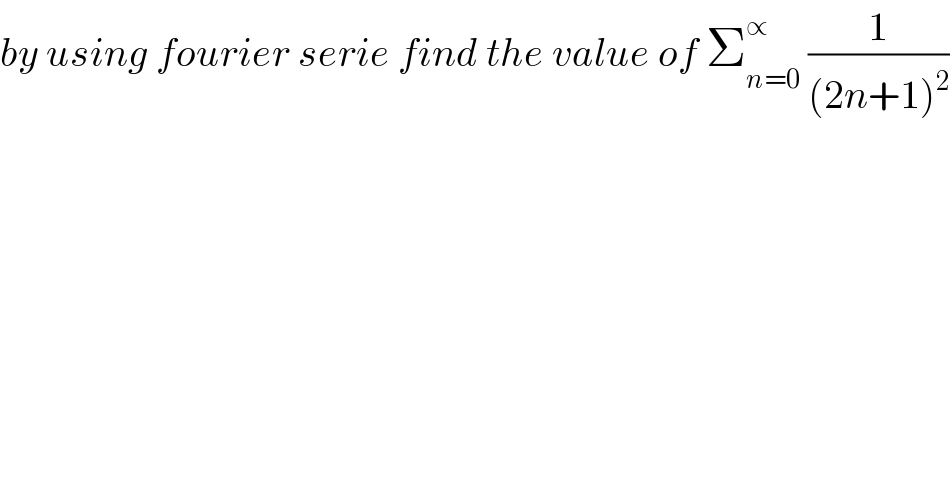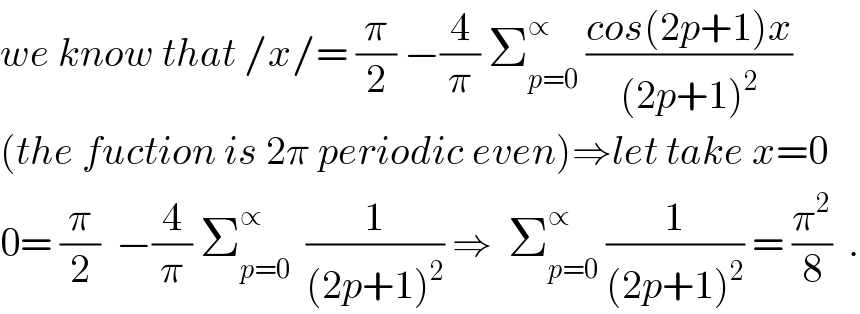
Question and Answers Forum
Question Number 26751 by abdo imad last updated on 28/Dec/17

Commented by abdo imad last updated on 30/Dec/17

| ||
Question and Answers Forum | ||
Question Number 26751 by abdo imad last updated on 28/Dec/17 | ||
 | ||
Commented by abdo imad last updated on 30/Dec/17 | ||
 | ||